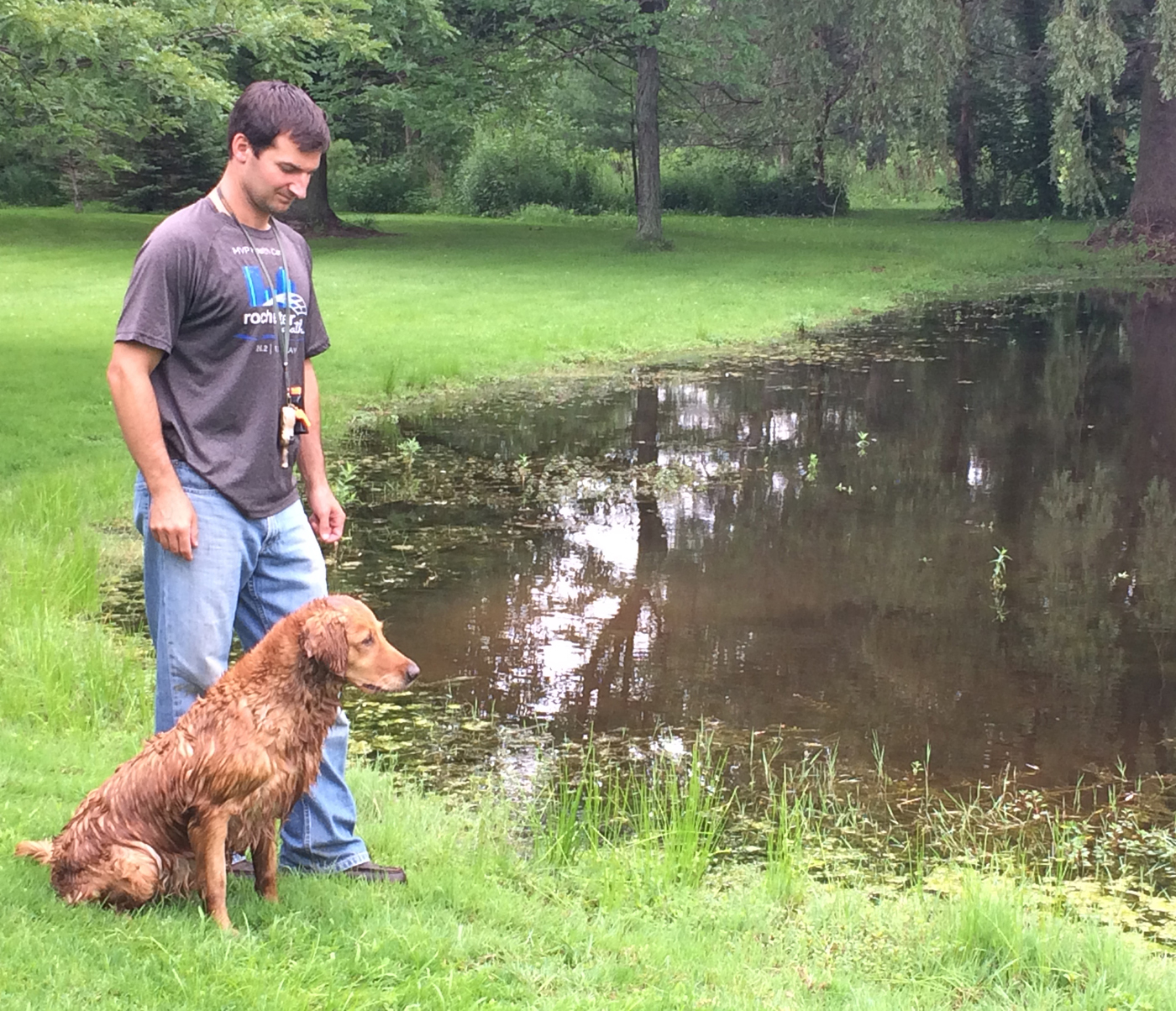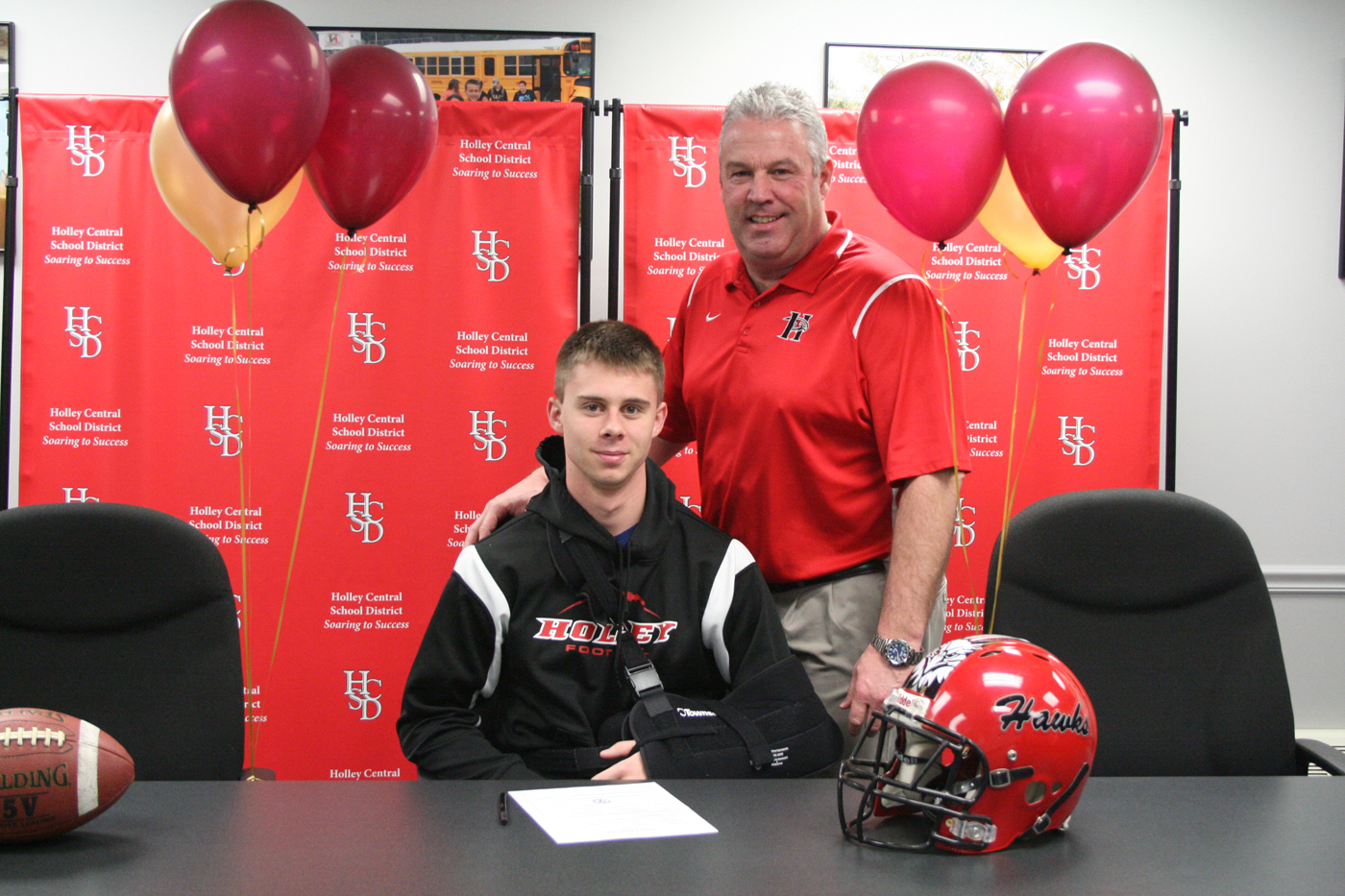Hunt Tests for retrievers

As I start to put together a plan on how I want to train my Labrador Retriever pup Rosalee (aka “The White Tornado,” aka “Drop it!”), I am thinking about joining a retriever club. I know there are a couple very good ones in the area and the dog training knowledge in these clubs is enormous. Most members are more than happy to give advice or help out with a problem you may be having with field dog training.
I knew I did not want to get into actual field trials with Rosalee. I had dipped my toe into that world with my first Lab and it turned me off. Some of the trainers that I met were super competitive and the things they asked of their retrievers were not realistic to a scenario that might come up in an actual hunting situation.
Over the last few years I have been hearing some great things about Hunt Tests for Retrievers. In these tests you don’t compete against other dogs, it’s just you and your retriever trying to master different skills … a retriever obstacle course of sorts.
Needing to learn more, I reached out to Scott Vanallen. Scott is a veteran waterfowler and top water dog man. He has a beautiful five-year-old female Golden Retriever by the name of Willow. Scott has worked hard training Willow and taken her through the ranks. She is now a Master Hunter (MH) and has qualified for the very prestigious National Master Hunter, passing six master hunt tests within a given year.
For Willow to have gotten this far there is no doubt that Vanallen knows his stuff and I asked him to explain the Hunt Tests in layman’s terms.
“Hunt Tests differ from field trials as they are more applicable to real hunting situations. These tests are not competitions against other dogs, so they are great places for people seeking training tips from more experienced trainers. They are also great locations to find good bloodlines for hunting retrievers.
“These tests do not necessarily have to be for hunters. Not all of the people who enter their dogs hunt; they just want a highly trained dog and enjoy the challenge of the tests against themselves and their dog. The tests are about the dog and yourself, and the ability to work together as a team.
“Training and testing in the off-season provides a great advantage for increasing wounded bird recovery rates throughout the hunting season. It also provides off-season strengthening and conditioning that is much needed throughout the hunting season.”
Scott informed me that there are many great dog clubs and organizations throughout New York State that offer Hunt Tests. They are offered through the American Kennel Club (AKC) and also through the North American Hunting Retriever Association (NAHRA). Both have very similar test situations. The closest club is the Western New York Retriever Club, of Wolcottsville (50 miles west of Rochester). Another close club is the Finger Lakes Retriever Club; they generally train and test out of Baldwinsville, New York (75 miles east of Rochester) or Mexico, New York.
Scott went on to explain that the retriever hunt tests are pass/fail tests. It is a test that consists of the dog and the handler against a given test scenario and set-up provided by the judges. The tests score the dogs on their natural abilities such as marking (retrieving) style, perseverance and the more advanced levels (Senior and Master); and the trainability of the dog in steadiness, control, response and delivery.
Within each level of the Hunt Test, the marks (retrieves) and expectations of the dog and handler greatly increase as the dog advances from one title to the next.
The first level is the Junior Hunt level. This is a basic training level that does not yet require steadiness or handling. At the Junior level, dogs are tested on four single retrieves – two on land and two on water. The distance of those retrieves can be up to 100 yards. The dog may be brought to the line on leash, but is expected to be under control. Once it marks the fall, the dog can be released off lead and is expected to find, retrieve and deliver the bird to hand. If the dog fails to find any of the birds or does not deliver the bird to hand, it fails the test. The nice thing is you can return at any time to test your dog again.
The Senior Hunt level is a more advanced level that begins testing the trainability of the dog through steadiness and handling along with its ability to retrieve. At the Master Level, dogs are tested with multiple marks (retrieves). Marks can be up to 150 yards for this level and become much more complicated for the dog, really testing his/her memory on marking. The retriever is expected to honor another working dog off lead without breaking.
Typically around here, there is a test in Wolcottsville and Baldwinsville in July. There also is a test in Baldwinsville (or Mexico) offered in September. Sometimes, there are double Junior and Senior Hunt tests in one weekend (one on Saturday and one on Sunday). With that said, you can travel to tests in Albany, Long Island, Ohio and Pennsylvania.
Scott points out, “You do not have to be a professional trainer to run your dog through the ranks and titles. There are plenty of amateurs that do a great job training and handling their own dog.”
Scott has much more detail on each level of testing than I have room for in this column. He knows this world, is serious about his passion and has a highly trained dog to prove it.
If you have a young hunting dog or just want to observe some great dogs in action, go visit one of these clubs and observe these retrievers. You will be impressed.


